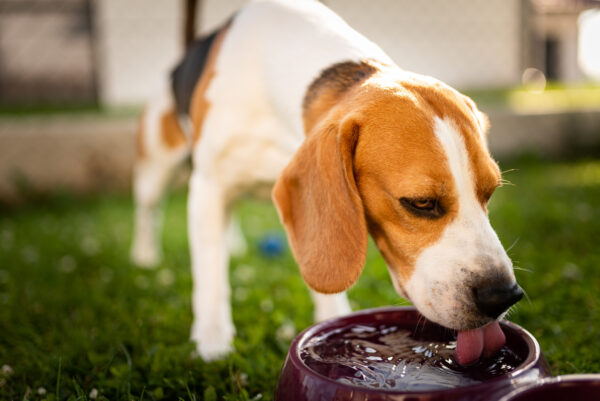There’s no denying the appeal of chocolate, but when it comes to our furry friends, it can pose a real risk to their health. At times when chocolate is more likely to be left lying around, tempting wandering noses, it’s worth being extra cautious. Keep reading to get the lowdown on whether it’s poisonous, how much can cause serious concern, and when to consult a vet if your dog has ingested the sweet stuff.
Why can’t dogs eat chocolate?
Chocolate is one of the human foods dogs can’t eat. The toxic ingredient in chocolate is a bitter-tasting stimulant called theobromine, which is naturally found in the cacao bean from which chocolate is derived. Dogs process theobromine much slower than us humans do and are therefore at higher risk of chocolate poisoning. Try to prevent your dog from getting hold of chocolate wherever possible, especially around Easter, Bonfire Night, and Christmas.
Signs of chocolate poisoning in dogs include:
- Vomiting
- Diarrhoea
- Hyperactivity
- Tremors
- Seizures
- Racing heart rate
- Death, in severe cases
My dog has eaten chocolate – what do I do?
If your dog has eaten chocolate, or if you suspect they’ve eaten chocolate, it’s vital to give your vet a call. They’ll likely ask you questions such as how much chocolate your dog has eaten, when your dog ate the chocolate, and what type of chocolate it was (e.g. dark chocolate is more toxic than white chocolate). Wrappers and packaging can be very useful here! This will help them work out whether or not your dog has eaten a toxic dose of chocolate and what treatment they’re likely to need. It will also help if you can provide an estimate of your dog’s weight.
It takes nearly four days for the effects of chocolate to work their way out of a dog’s system. If the chocolate was only just eaten, it’s possible that your vet might be able to make your dog throw it up. Otherwise, a stay at the vets is needed until the chocolate has worked its way out of their system.
Our articles are not a replacement for face-to-face vet advice. It’s important to consult with your vet on a regular basis to raise any pet concerns that you may have.



